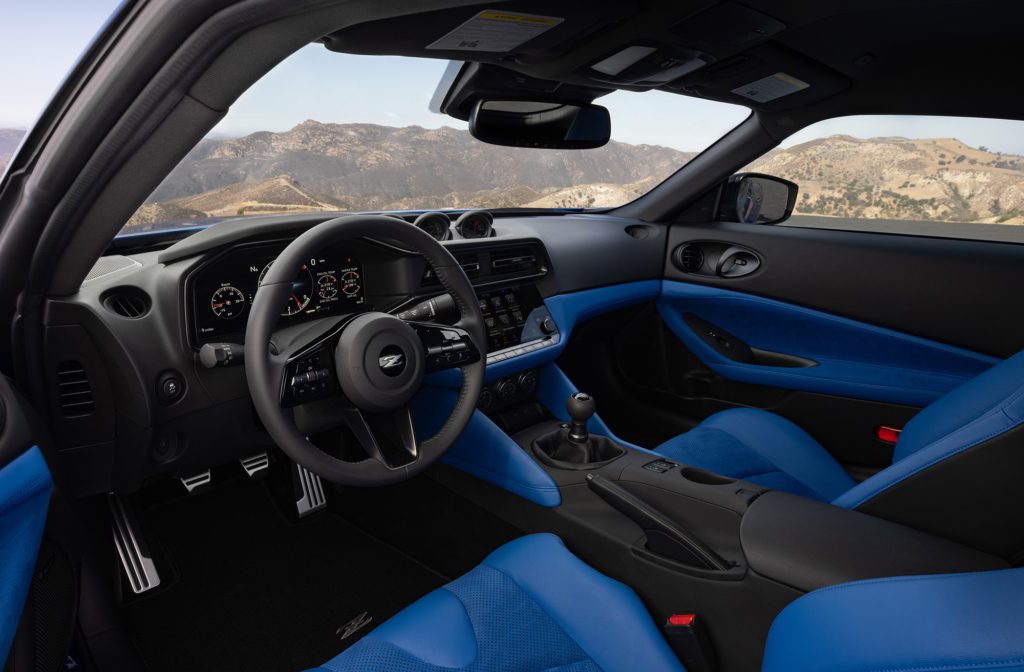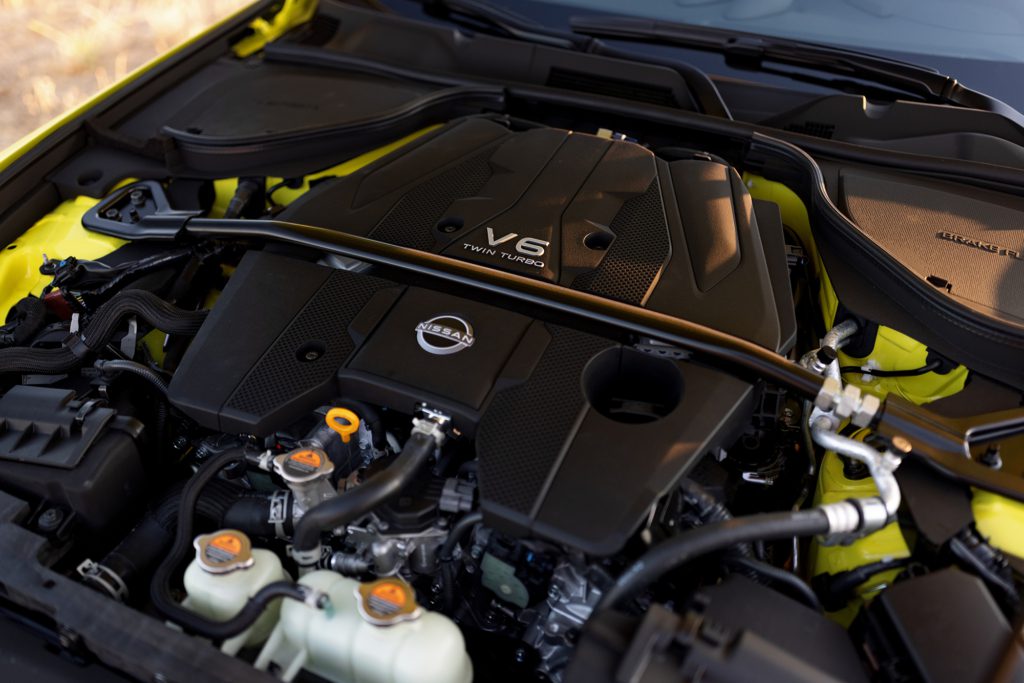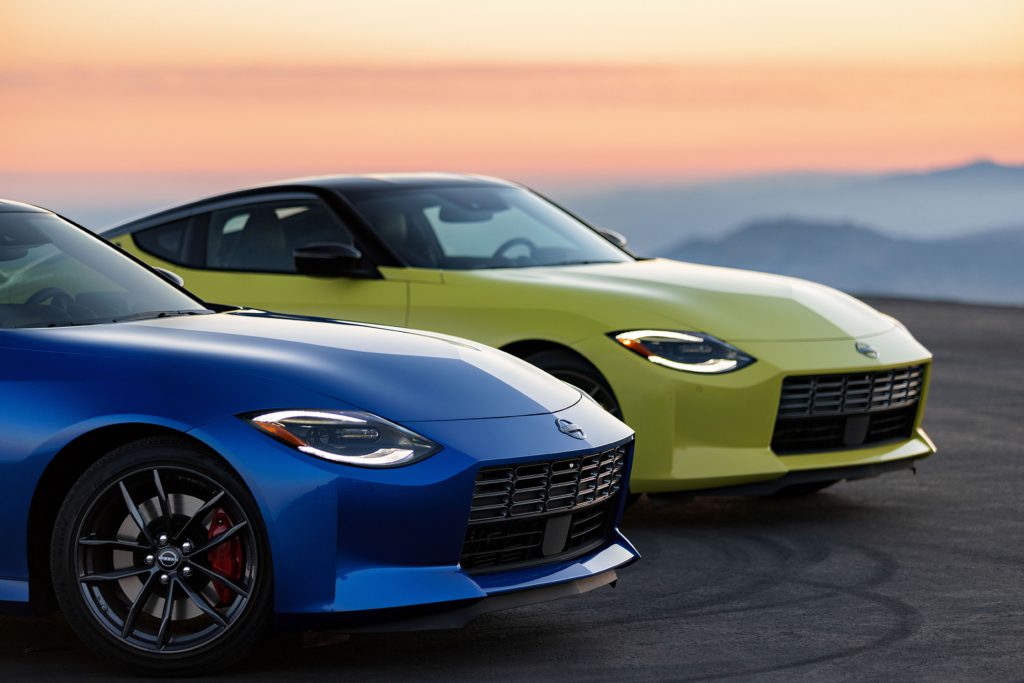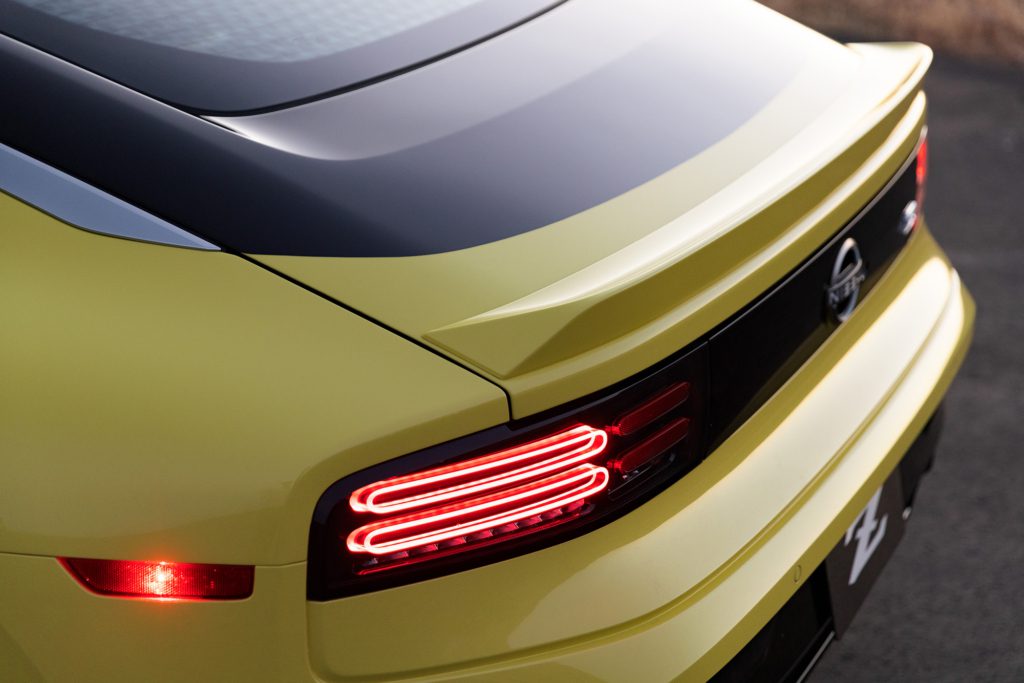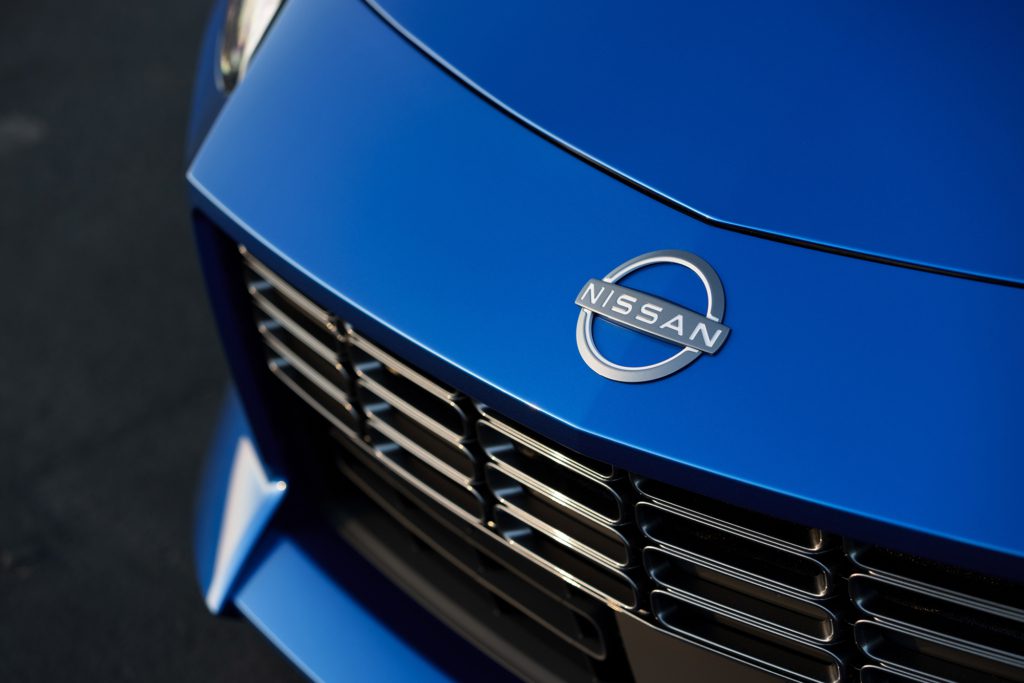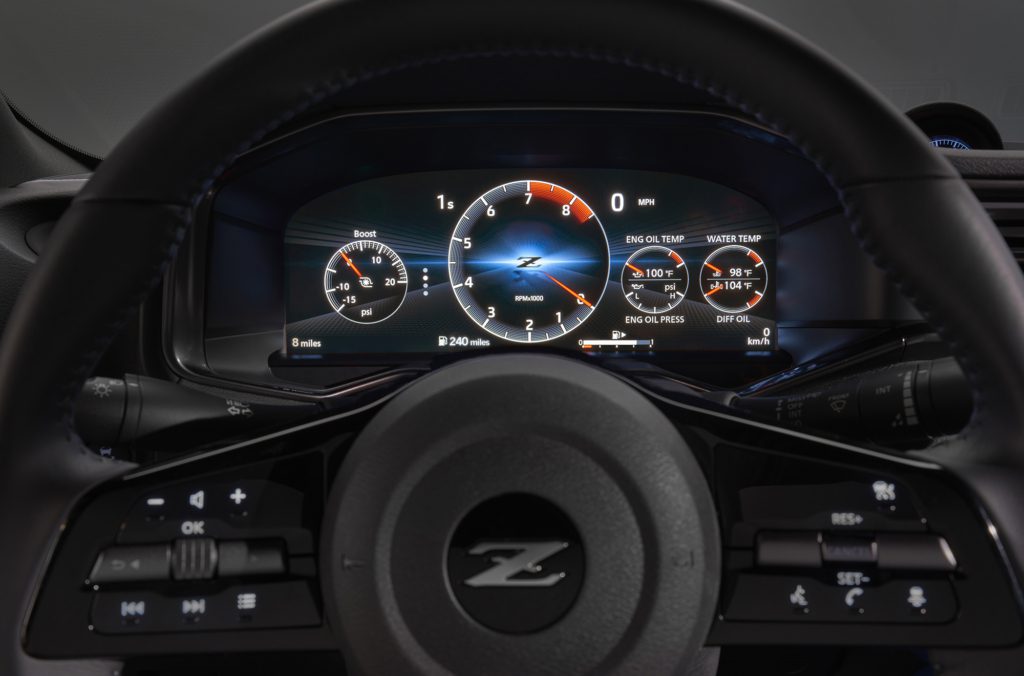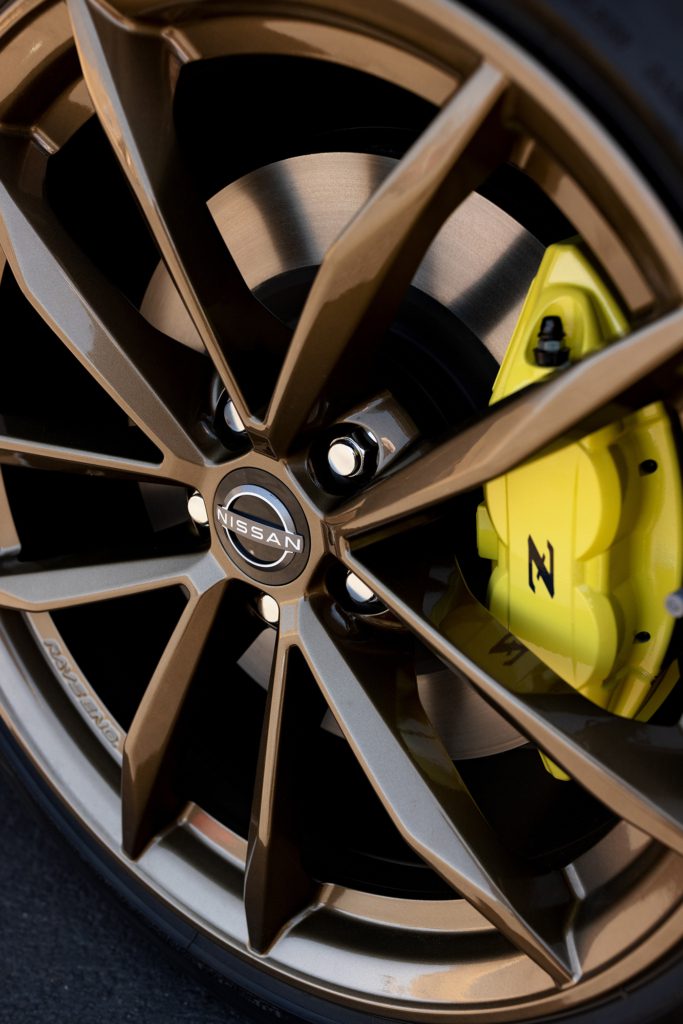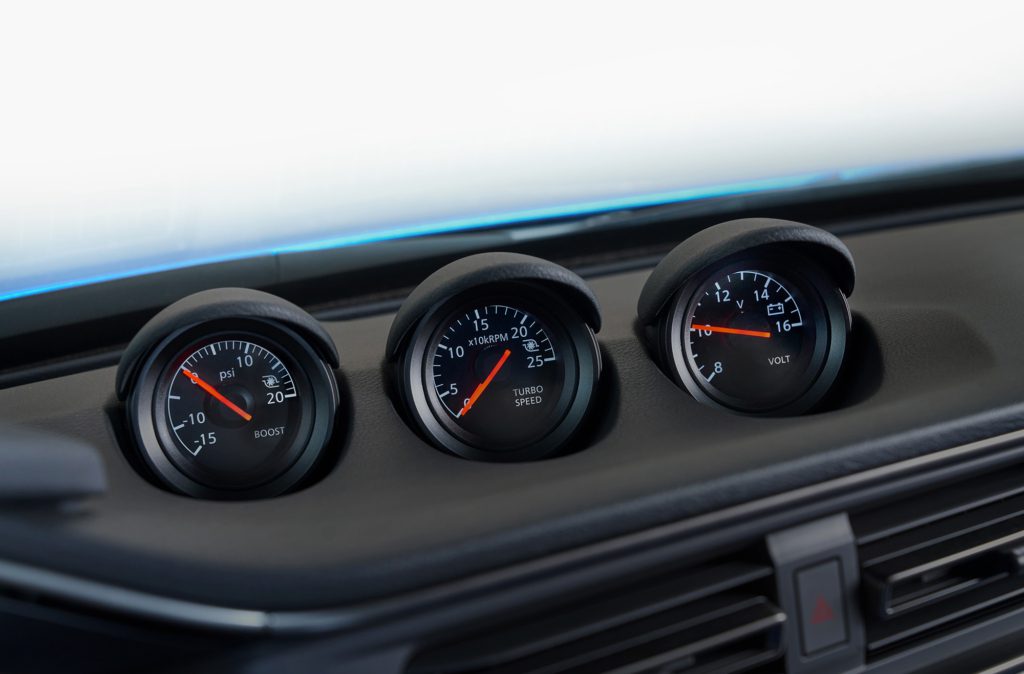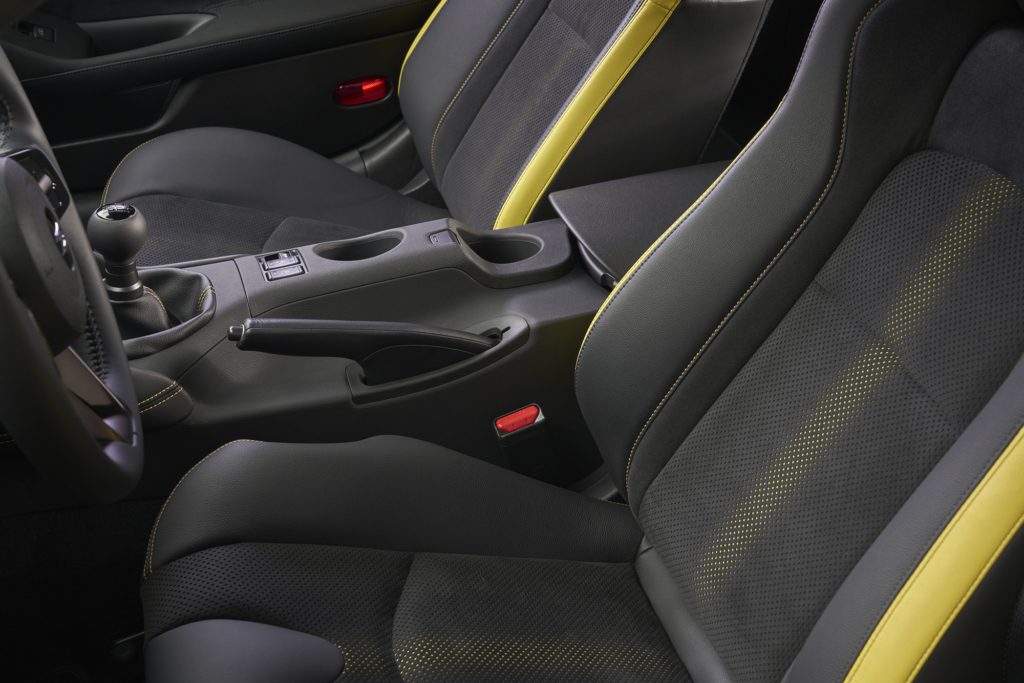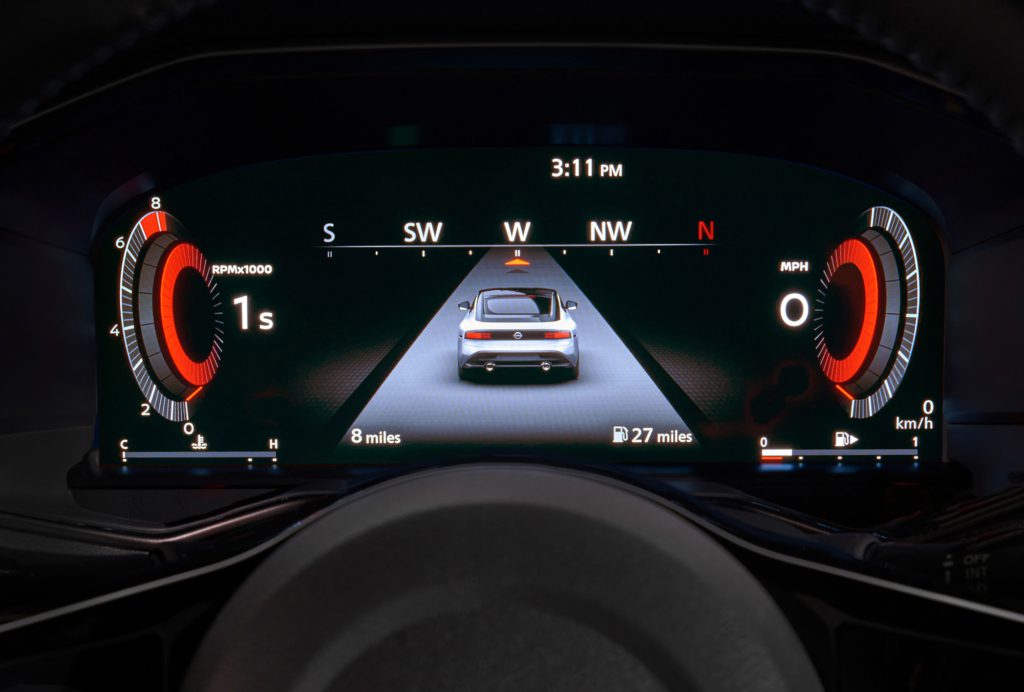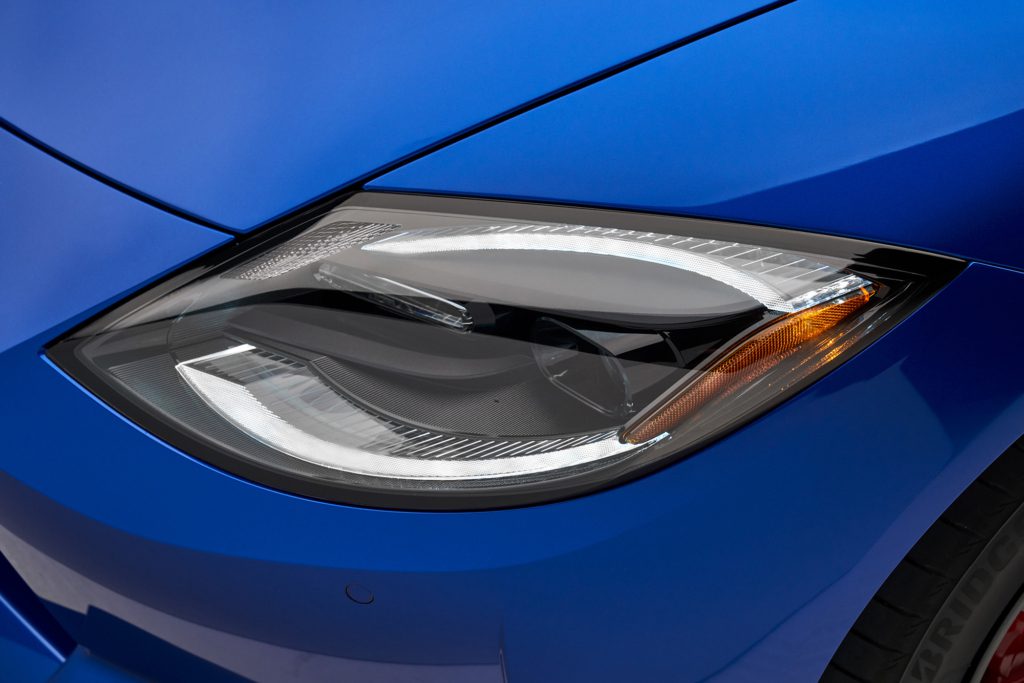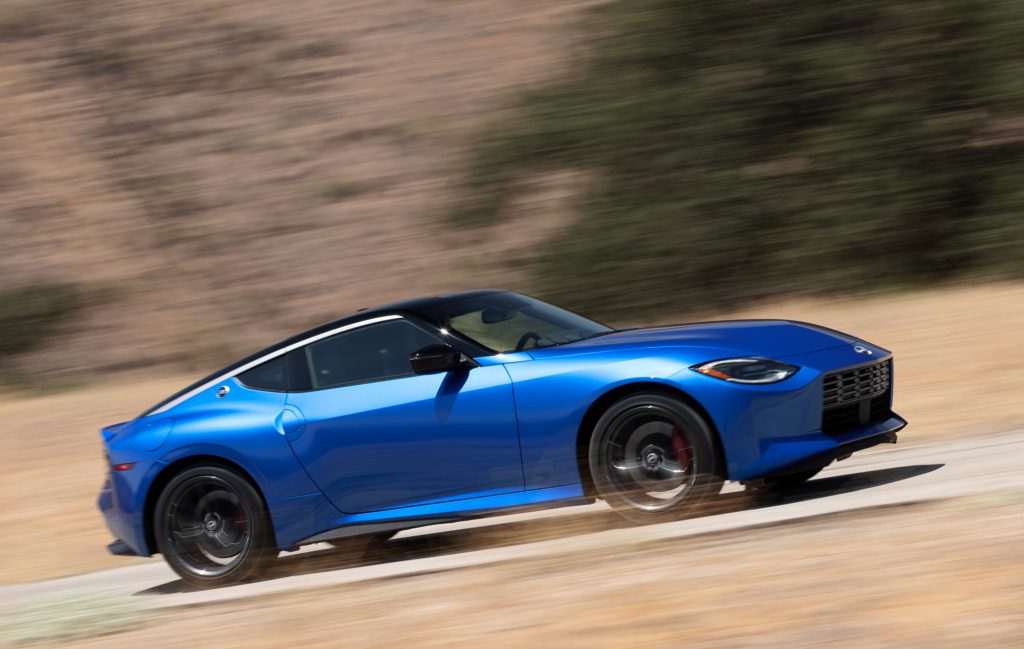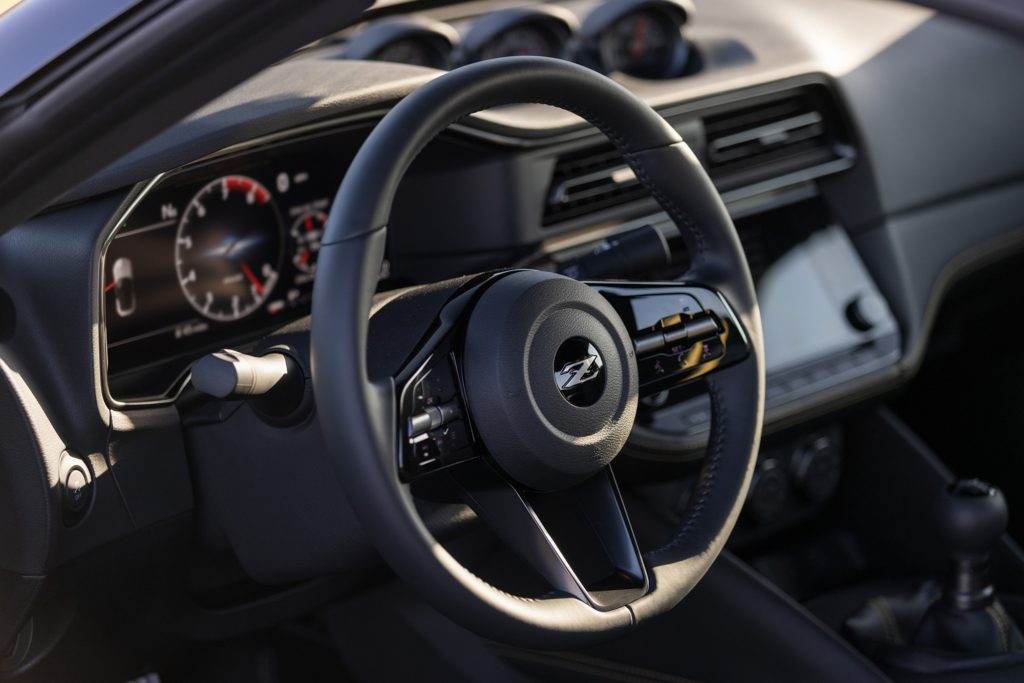Nissan unveils new production Z car
The all-new, seventh-generation 2023 Z, which drops its numerical prefix in the US for the first time, is scheduled to go on sale in the US at Nissan dealers nationwide in spring 2022.
Nissan says the car was developed by a passionate team of designers and engineers, and represents an approachable sports car for the modern age.
“Z is the pure expression of ‘thrill’. It is Nissan’s passion wrapped up on four wheels,” said Ashwani Gupta, representative executive officer and chief operating officer, Nissan Motor Co. “The new Z retains its authenticity as a pure sports car to keep you connected to the road while bringing in the latest modern technologies to make sure the car can help keep you connected to your life.”
The 2023 Z’s 3.0-litre V6 twin turbo engine adds a significant bump in power output over the previous generation 370Z. The engine is rated at 400 horsepower (298kW) at 6,400 rpm and 350 lb-ft (474.5) of torque starting from 1,600 to 5,600 rpm. With an increase of 68 horsepower (50.7kW) and a 30 per cent increase in torque, the engine is designed to deliver a sharp, yet smooth response to the driver’s input, along with an estimated 15 per cent improvement in 0 to 60 mph (0-100 km/h) acceleration.
“Simply put, our goal is to make this the best Z yet, period. With each generation, we raise the bar, pushing the limits of Z and continuing to tap into the human instinct for that next thrilling journey,” said Hiroshi Tamura, chief product specialist of the new Z. “More than just powerful and agile, the 2023 Z is designed to be one with the driver for all kinds of on-road adventures.”
To achieve the marked increase in power and torque, and to deliver sharp response, small-diameter turbochargers were adopted, as well as a turbo speed sensor to ensure the capabilities of the turbos are fully used (maximum spooling speed). The twin turbos balance power output and response time, while the use of an electronic variable valve timing (e-VVT) intake valve system ensures optimum response, adjusting the intake valve timing on-the-fly to achieve excellent response and fuel efficiency in a variety of driving scenes.
The Z comes with a close-ratio 6-speed manual transmission and EXEDY high-performance clutch as standard equipment. As a physical touch point between driver and Z, Nissan says the shifter glides to the next gear, almost instinctively, with minimal effort.
In a first for a rear-wheel drive Nissan vehicle, Z Performance models equipped with a manual transmission include an advanced launch assist control system that helps deliver smooth acceleration from a stopped position. All automatic transmission-equipped models feature the launch control system. Manual transmission-equipped models also feature a carbon-fibre composite drive shaft, with SynchroRev Match added to 6MT Performance models.
An advanced, quick-response 9-speed automatic transmission is also available. The new automatic offers a direct and quick response feeling and quick acceleration, thanks to its wide gear ratio spread and standard launch control system. Aluminium paddle shifters are standard on all 9AT-equipped models, with paddle shifters, the same design as found on GT-R, on Performance models.
The engineering team tuned the chassis, cooling, suspension and steering to ensure the driver always feels connected with the car. Getting behind the wheel, Nissan says the Z feels new and modern, yet still familiar.
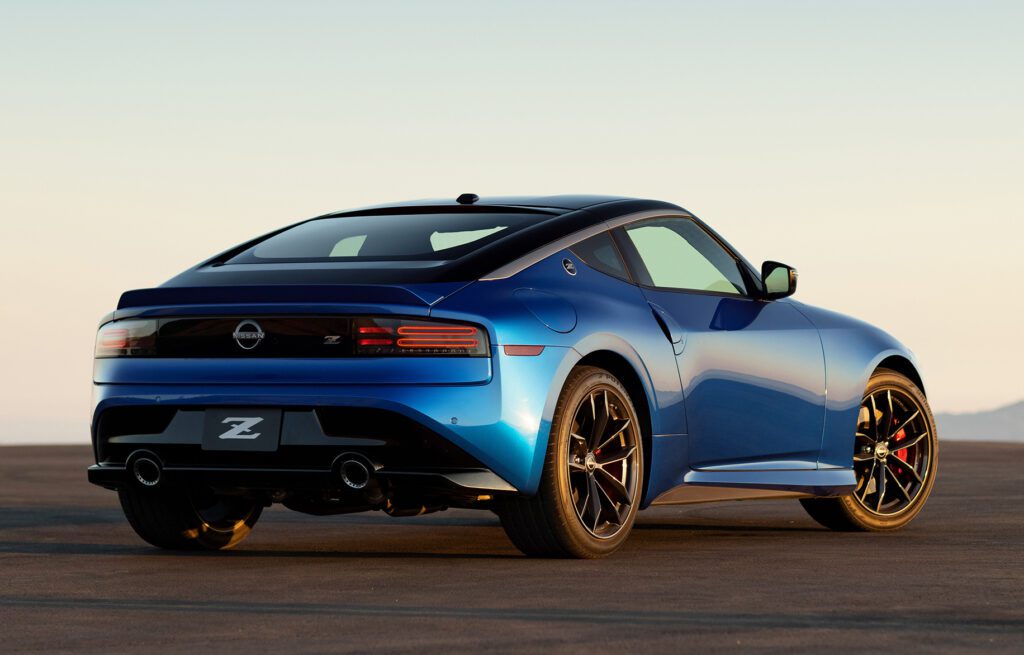
Nissan says the engineering team took a multi-prong approach, especially for high-speed driving and cornering. Enhanced body rigidity, an electronic power steering with rack assist and a strong mechanical feel, and wider front tyres (on both Sport and Performance grades) help increase maximum cornering G up to 13 per cent.
Front and rear dampers use a new monotube shock absorber design with a larger diameter than the outgoing 370Z, resulting in an approximately 20 per cent reduction in dampening force to help minimise impact shock over uneven surfaces, enhance road-following performance and improve handling stability. The front double-wishbone aluminium suspension features new geometry, including increased caster angle, improving straight line stability. A two-point front strut tower brace is standard. The rear independent multi-link aluminium suspension has also been reconfigured with new settings.
Two drive modes are offered on automatic transmission models, standard and sport. Standard mode is best suited for commuting and long highway drives. Sport mode unlocks the Z’s performance potential, offering faster acceleration control, a sports-mode steering algorithm, active sound enhancement and sports-mode vehicle dynamic control setting that is best matched to spirited runs through winding roads. All Z Performance grade models (automatic and manual) use a mechanical clutch-type limited-slip differential.
Responsive braking is provided by 4-wheel ventilated disc brakes. Larger sport brakes with red-painted calipers are standard on Performance grade models. The Z Sport grade rides on dark-painted 18-inch aluminium-alloy wheels with Yokohama ADVAN Sport high performance tyres, while Z Performance grades features 19-inch RAYS super lightweight forged aluminium-alloy mounted with Bridgestone Potenza S007 high performance tyres.
The 2023 Z boasts a fresh, sleek exterior design with an appearance that communicates respect to its lineage. Its long hood and short deck are fundamentally Z, with a fresh look. The design theme for the exterior and interior of the new Z was ‘tradition with modern technology.’
“Inspired by the voices of thousands of Z owners and Z lovers, and ignited by internal conversations around the six generations of Z that have come before, we found ourselves gravitating towards the sketches that touched the high points of certain decades while remaining true to our vision of the future,” said Alfonso Albaisa, global head of design at Nissan. “Ultimately, we created a Z that travels between the decades while being completely modern.”
For the exterior, the new Z takes on a traditional rear-wheel-drive sports car design, with a long hood, lower rear stance and a silhouette that pays homage to the first-generation Z. The designers used the latest technologies to streamline the design, and incorporated LED lighting to give dimension without unnecessary elements. The LED headlights have two half-circles that take their inspiration from the Japan market-only 240ZG of the 1970s, which fit naturally with the new Z’s identity.
The link to the original Z is most striking when viewing the 2023 Z from the side. The roofline flows from the nose to the squared-off rear to create a distinctive first-generation Z profile, whose rear edge was slightly lower than the front fender height giving the Z its unique posture.
The signature transition from the rear quarter glass to the low-slung position of the rear tail adds to the effect. Door handles are a flush-mounted design and the rear hatch design is ultra-thin, yet with increased rigidity over the previous 370Z design. In the rear, the blister fenders smoothly direct flow air past the horizontal rear panel. The rear combination lamps incorporate modern technology into the design reminiscent of the Z32 (1990-1996) 300ZX, including new 3D signature LED taillights.
The Z Performance grade features a rear spoiler that creates positive pressure where the rear hatch and spoiler meet, mitigating rear lift. The front spoiler takes advantage of knowledge gained through Nissan GT-R development to use negative pressure zones.
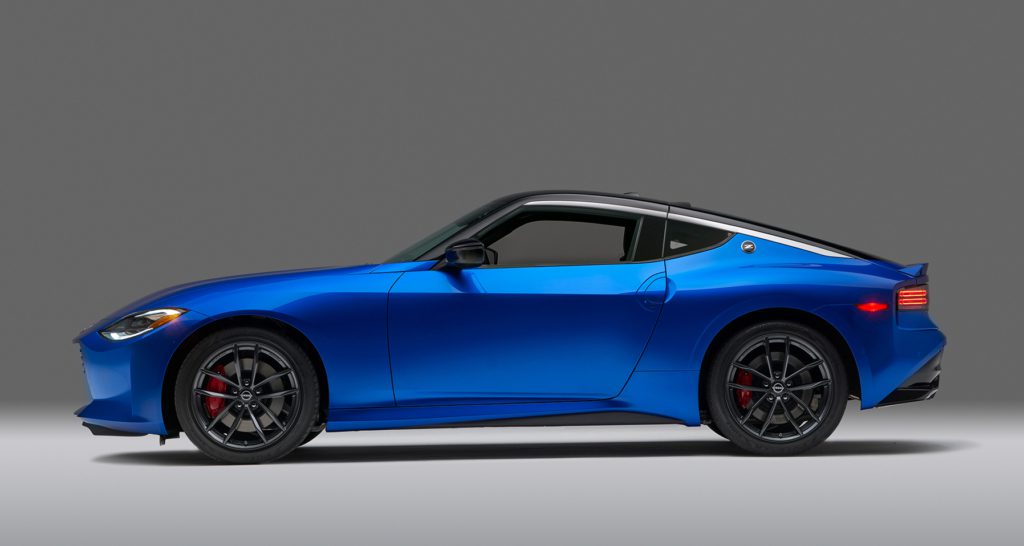
The new 2023 Z is available in three monotone exterior colours – Black Diamond Metallic, Gun Metallic and Rosewood Metallic. The new Z is also offered with a two-tone exterior, including six colours combined with a Super Black roof: Brilliant Silver, Boulder Gray, new Seiran Blue, new Ikazuchi Yellow, Passion Red TriCoat and Everest White Pearl TriCoat.
The Z’s cabin blends modern technology with vintage Z touches. The centre stack takes inspiration from other generations before it, with three analogue pod gauges on the instrument panel, 8.0-inch touchscreen audio display in the centre and climate control switches near the shifter.
The interior design team also sought advice from professional motorsports legends, such as Nissan Super GT500 driver Tsugio Matsuda, to give the Z an ideal sports car cabin for all driving scenes. This can be seen in the instrumentation, with all vital information found in the 12.3-inch customisable digital meter display and arranged to help the driver grasp it at a glance, such as the redline shift point at the 12 o’clock position.
The 12.3-inch TFT meter display is all-new with three display modes to suit driver preference. ‘Normal’ mode offers a sporty feel with the centre area for navigation, audio and vehicle information. ‘Enhanced’ mode pushes the tachometer and speedometer to the edges of the display, giving more space in the centre for a larger navigation map and information to be displayed. ‘Sport’ mode prioritises the tachometer in the centre with shift-up light at the top for shift information in the driver’s field of view. The Sport mode also allows for a boost gauge or G meter to be displayed.
The new Z’s centre stack uses a three-zone approach, placing three analogue pod gauges on the instrument panel (boost, turbo speed, volt) within the driver’s eyesight. Both the manual and automatic shift levers are new, each of them custom-engineered for optimised grip and comfort.
The new, deep-dish steering wheel offers the driver quick access controls without losing its vintage aesthetic.
The design of the seats uses know-how from the GT-R’s development to enhance both hold and fit. An expanded use of suede on the seatback suppresses initial lateral shake on the body, creating more comfortable drives, as well as reducing body movement when the vehicle is aggressively cornering.
The 2023 Z Sport grade offers black woven cloth seats with an 8-way manual driver’s seat and 4-way manual passenger seat. The Z Performance grade adds leather-appointed seating surfaces, 4-way power driver’s seat with manual lifter, lumbar and thigh support, 4-way power passenger seat and heated seats.
A full range of convenience features are offered as standard equipment, including Nissan Intelligent Key with Push Button Start, Intelligent Cruise Control, Automatic Temperature Control, auto-dimming rear-view mirror, RearView Monitor, two 12-volt power points, two USB points (Type-A and Type-C), and front and rear sonar sensors. The 8.0-inch display audio touchscreen with six speakers includes Apple CarPlay and Android Auto, Bluetooth Hands-free Phone System, Streaming Audio via Bluetooth, SiriusXM Radio, Hands-free Text Messaging Assistant and Siri Eyes Free.
The Z Performance grade includes a 9.0-inch touchscreen with navigation and NissanConnect Services with Wi-Fi hotspot. Also included is an 8-speaker Bose audio system with Active Noise Cancellation and Active Sound Enhancement.
Three interior colour environments are available – Black, Red and Blue. The special Z Proto Spec edition features yellow accents throughout the cabin, including stitching on the instrument panel. The seats feature layered seat material to create depth and a gradation effect.
All models include a range of standard driver assistance and safety technologies, including Automatic Emergency Braking with Pedestrian Detection, Blind Spot Warning, Lane Departure Warning, Rear Cross Traffic Alert, High Beam Assist and Intelligent Forward Collision Warning.
One special edition is available, celebrating the distinctive Z Proto introduced in 2020 – called the Proto Spec. Limited to just 240 units in the US, the Proto Spec model includes yellow-coloured brake calipers with Z logo, bronze-coloured 19-inch RAYS aluminium-alloy wheels, exclusive shift lever knob (6MT only), exclusive Proto Spec leather-appointed seats with yellow accents, exclusive Proto Spec suede + cloth door trim with yellow stitching and special Proto Spec interior stitching.


